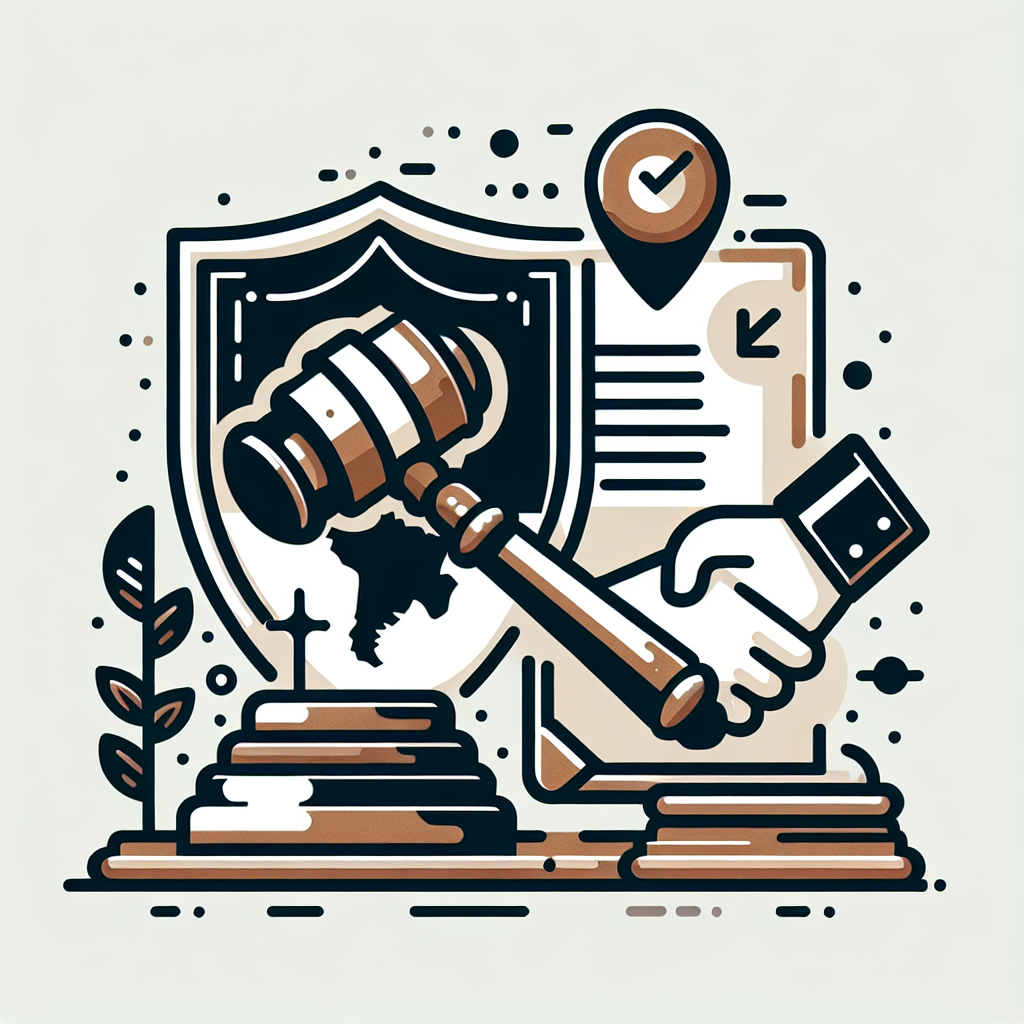Ensuring Compliance with Intellectual Property Laws
What Are Intellectual Property Laws?
Intellectual property (IP) laws are a cornerstone of modern innovation and creativity, designed to protect the rights of creators, inventors, and businesses. These laws grant exclusive rights to individuals or organizations over their creations, ensuring they can benefit from their work without fear of unauthorized use or exploitation. Intellectual property encompasses a wide range of assets, including inventions, literary and artistic works, designs, symbols, names, and images used in commerce.
There are several types of IP laws, each serving a specific purpose. Copyright laws protect original works of authorship, such as books, music, films, and software, by granting creators exclusive rights to reproduce, distribute, and display their work. Trademark laws safeguard brand identifiers like logos, slogans, and names, ensuring businesses can distinguish their products or services in the marketplace. Patent laws protect inventions and grant inventors the right to exclude others from making, using, or selling their invention for a set period. Lastly, trade secret laws protect confidential business information, such as formulas, processes, or strategies, that provide a competitive edge.
The importance of IP laws cannot be overstated. They incentivize innovation by ensuring creators and businesses can reap the rewards of their efforts, fostering a culture of creativity and progress. Without these protections, the risk of theft or misuse would stifle innovation and disrupt fair competition.
Why Compliance with Intellectual Property Laws Matters
Compliance with intellectual property laws is not just a legal obligation—it’s a critical business strategy. Failing to adhere to these laws can result in severe legal and financial consequences. Companies found guilty of IP violations may face lawsuits, hefty fines, and even criminal charges in some cases. Beyond the financial impact, non-compliance can tarnish a company’s reputation, eroding customer trust and damaging brand equity.
On the flip side, compliance fosters a fair and competitive marketplace. By respecting IP rights, businesses encourage innovation and collaboration, knowing their creations are protected. This environment benefits not only individual companies but also consumers, who gain access to a diverse range of high-quality products and services.
Moreover, compliance with IP laws can open doors to new opportunities. For instance, businesses with a strong IP portfolio are more attractive to investors and partners. They can also leverage their IP assets through licensing agreements, creating additional revenue streams. In today’s knowledge-driven economy, intellectual property is often one of a company’s most valuable assets, making compliance a top priority.
Common Intellectual Property Law Violations
Despite the importance of IP compliance, violations are alarmingly common. One of the most prevalent issues is copyright infringement , which occurs when someone uses copyrighted material without permission. This can include anything from using unlicensed images on a website to pirating software or movies. For example, in 2020, a major streaming platform faced a lawsuit for allegedly using copyrighted music without proper licensing, resulting in a multi-million-dollar settlement.
Trademark misuse is another frequent violation. This happens when a business uses a name, logo, or slogan that is confusingly similar to an existing trademark, potentially misleading consumers. A well-known case involved a small coffee shop that used a logo resembling that of a global coffee chain, leading to a costly legal battle.
Patent violations are also a significant concern, particularly in industries like technology and pharmaceuticals. These occur when a company produces or sells a patented invention without authorization. For instance, a tech giant was recently ordered to pay billions in damages for infringing on a competitor’s patented technology.
These examples highlight the risks of non-compliance and underscore the importance of understanding and adhering to IP laws. Ignorance is not a defense, and even unintentional violations can have serious repercussions.
Steps to Ensure Compliance with Intellectual Property Laws
Conducting an IP Audit
The first step in ensuring compliance is to conduct a thorough IP audit. This involves identifying and cataloging all intellectual property assets within your organization. An IP audit helps you understand what you own, what needs protection, and whether any existing protections are up to date. For example, you might discover that a trademark you’ve been using for years was never officially registered, leaving it vulnerable to infringement.
Understanding Ownership Rights
Clarifying ownership rights is crucial, especially in collaborative environments. Determine who owns the IP created by employees, contractors, or third parties. For instance, if a freelance designer creates a logo for your company, ensure your contract specifies that the rights to the logo are transferred to your business. Ambiguities in ownership can lead to disputes and potential legal challenges.
Registering Your IP
While some IP rights, like copyrights, are automatically granted upon creation, others require formal registration. Registering trademarks, patents, and copyrights provides legal protection and strengthens your position in case of disputes. For example, a registered trademark allows you to take legal action against counterfeiters or competitors using similar branding.
Monitoring and Enforcement
Compliance doesn’t end with registration. Regularly monitor the marketplace for potential infringements of your IP. Tools like Google Alerts or specialized IP monitoring services can help you identify unauthorized use. When infringements are detected, take prompt action, whether through cease-and-desist letters or legal proceedings.
Best Practices for Businesses to Avoid IP Infringement
Training Employees
Educating your team on IP laws is one of the most effective ways to prevent violations. Conduct regular training sessions to ensure employees understand the importance of compliance and the risks of infringement. For example, teach your marketing team to use only licensed images and your product development team to avoid incorporating patented technologies without authorization.
Using Licensed Content
Always ensure you have the proper licenses for third-party materials, such as software, images, or music. Unauthorized use can lead to costly lawsuits. For instance, a small business was recently fined thousands of dollars for using unlicensed stock photos on its website.
Implementing Clear Contracts
Drafting clear contracts that address IP ownership and usage rights is essential. Whether you’re working with employees, contractors, or partners, ensure your agreements specify who owns the IP and how it can be used. This clarity can prevent disputes and protect your interests.
Regular Legal Reviews
IP laws are complex and constantly evolving. Work with legal professionals to conduct regular reviews of your IP portfolio and compliance practices. Staying updated on changes in the law can help you avoid unintentional violations and adapt to new regulations.
Leveraging Technology for IP Compliance
Technology can be a powerful ally in managing intellectual property. Tools like IP management software can help businesses track their assets, monitor for infringements, and manage renewals for trademarks or patents. For example, AI-powered tools can scan the internet for unauthorized use of your copyrighted content, alerting you to potential violations.
Automation can also streamline compliance processes. For instance, some platforms automatically verify the licensing of third-party materials, reducing the risk of accidental infringement. By leveraging these tools, businesses can enhance their compliance efforts and protect their valuable IP assets.
International Considerations for Intellectual Property Compliance
For businesses operating globally, navigating IP laws across different countries can be challenging. Each jurisdiction has its own set of rules, and what is protected in one country may not be recognized in another. For example, a trademark registered in the United States may not automatically be protected in Europe or Asia.
To ensure compliance, consider registering your IP in key markets where you operate. Work with legal experts who specialize in international IP law to understand the nuances of each jurisdiction. Additionally, be aware of treaties like the Madrid Protocol, which simplifies the process of registering trademarks in multiple countries.
The Role of Legal Counsel in IP Compliance
Hiring an intellectual property attorney is a wise investment for any business. Legal counsel can assist with registering your IP, drafting contracts, and resolving disputes. They can also provide guidance on complex issues, such as licensing agreements or international compliance.
For example, if your company is accused of IP infringement, an experienced attorney can help you navigate the legal process and minimize potential damages. Their expertise can be invaluable in protecting your business and ensuring long-term compliance.
Emerging Trends and Future Challenges in Intellectual Property Compliance
The digital age has brought new challenges to IP compliance. The rise of online content, social media, and e-commerce has made it easier than ever to infringe on IP rights, whether intentionally or unintentionally. Additionally, emerging technologies like AI and blockchain are raising questions about how IP laws should evolve.
For instance, who owns the copyright to an artwork created by AI? How can blockchain be used to verify the authenticity of digital assets? Businesses must stay informed about these trends and adapt their compliance strategies to address new challenges.
Resources for Staying Informed on Intellectual Property Laws
Staying informed is key to effective IP compliance. Government agencies like the U.S. Patent and Trademark Office (USPTO) and the World Intellectual Property Organization (WIPO) offer valuable resources and guidance. Online tools like IP management software can also help businesses track and protect their assets.
For those looking to deepen their understanding, consider enrolling in courses on IP law or consulting with legal professionals. By staying proactive, businesses can navigate the complexities of IP compliance with confidence.
Get a Free Case Evaluation
Tell us your details and we'll get right back to you.
Blog Contact Form
We will get back to you as soon as possible.
Please try again later.
Milano IP is a law firm specializing in patents, trademarks, copyrights, and trade secrets. We protect your innovations, ensuring your ideas are secure. "Where Innovation Meets Protection" is our promise to support your business growth.
Locations
Menu
Latest news
Mario T Milano Law, LLC




